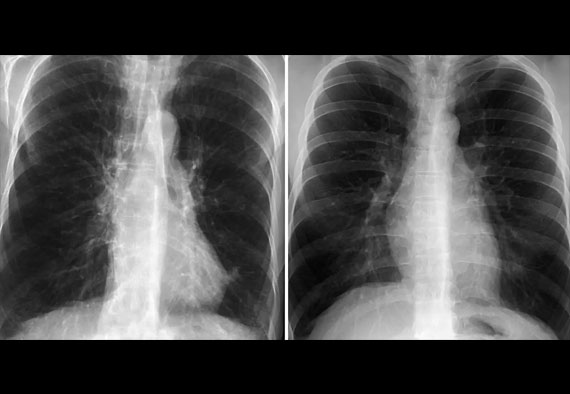
COPD
“Chronic obstructive pulmonary disease” (COPD) is a term for certain types of irreversible lung and airway damage that block (obstruct) your airways and make it hard to breathe. If you’re diagnosed with either emphysema or chronic bronchitis, you have COPD. Changes in your lungs and airways in COPD include:
People with COPD often get exacerbations, or worsening of symptoms, like severe difficulty breathing, thicker mucus, wheezing and cough. You might need to go to the hospital for severe exacerbations.
COPD gets progressively worse over time. Flare-ups get more severe and happen more often. This usually takes years or decades, though some people get worse faster.
Types of chronic obstructive pulmonary disease
COPD includes both emphysema and chronic bronchitis. People with COPD often have features of both.
What are the symptoms of COPD?
Symptoms of COPD include:
What causes COPD?
Damage to your lungs from smoking is the most common cause of COPD. Other causes include:
What are the risk factors for this condition?
While smoking is the biggest risk factor for COPD, not everyone who smokes will develop it. You may be at higher risk for COPD if you:
